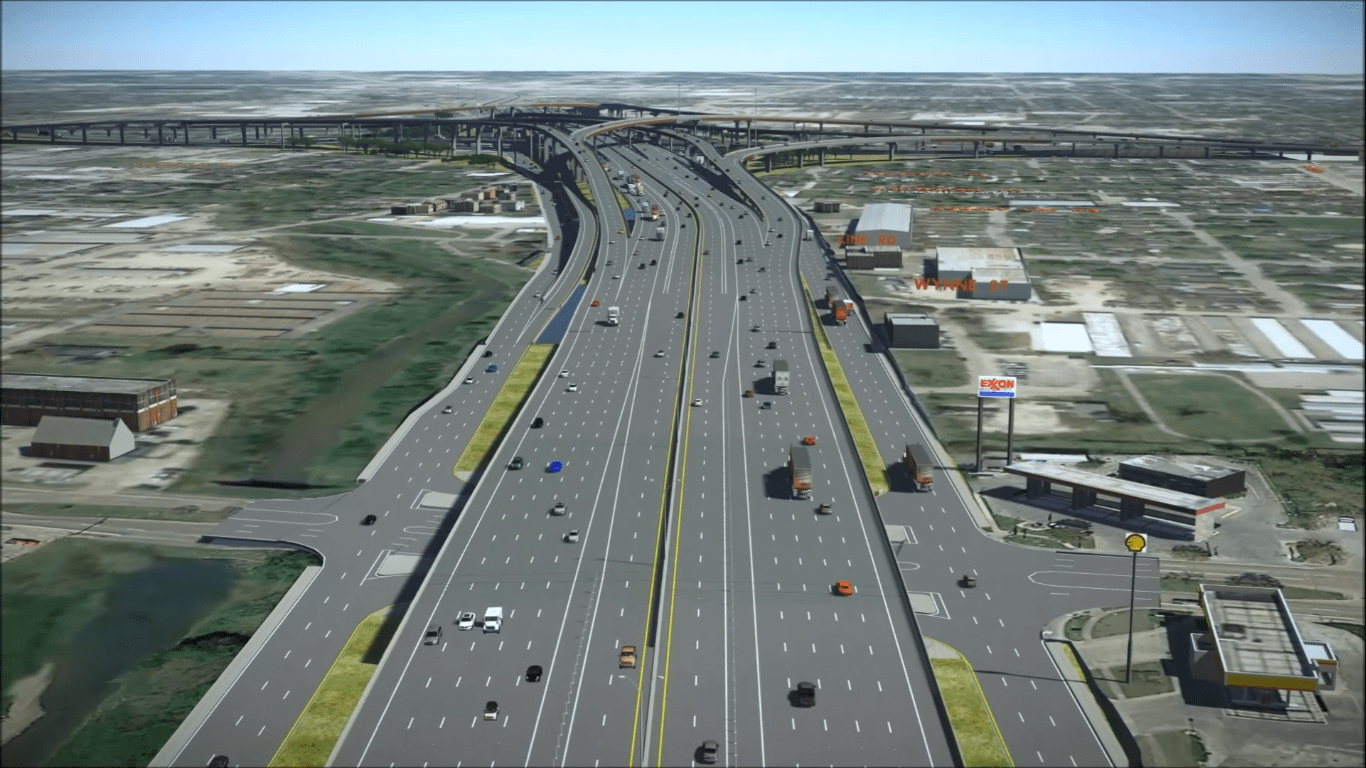The construction of America's downtown highways destroyed thousands of black neighborhoods during the height of the urban renewal era in the 1940s and '50s — and a new impact study of a controversial highway project in Houston serves as a reminder that the racist policy never ended.
The latest estimates of the human cost of the Interstate 45 project reveal that the highway expansion would require the destruction of "158 houses, 433 apartments or condos, 486 public housing units, 340 businesses, five churches and two schools," the Houston Chronicle reported. The buildings that the Texas Department of Transportation seeks to demolish are disproportionately located in low-income communities of color, including many within the borders of Texas’s first black-formed municipality, Independence Heights, a region of major historic significance.
BIPOC activists have long cited displacement and the destruction of black communities in their fight against the $7-billion megaproject, which would functionally rebuild most of the downtown freeway system in the process of expanding and re-routing the interstate. But the scale of the estimated destruction hits particularly hard after a week of civil unrest and consequent police brutality in response to the killing of George Floyd by Minneapolis police. The Black Lives Matter movement is demanding that cities across the country defund their bloated law enforcement budgets and make reparative investments in black communities — precisely the opposite of projects like the I-45, which would raze black neighborhoods and destroy black wealth.
"The relationship between highways and racial injustice exemplifies the kinds of systemic issues that many protesters are now seeking to challenge," Linda Poon wrote at Citylab last week. "Policies that on their face may have appeared to be about easing transportation barriers and revitalizing cities were — and still are — often rooted in longstanding racial prejudice, and carried with them cascading effects that worsened pre-existing inequalities."
The highway would almost certainly result in an increase in traffic violence, too — a phenomenon that disproportionately impacts black communities. Black drivers are at serious risk, as well; three of Houston's highways already ranked among the most dangerous roads in the nation in 2018. The state of Texas itself warned that the I-45 project would “cause disproportionate high and adverse impacts to minority or low-income populations," and that the project’s “[d]isplacement of bus stops could affect people who do not have access to automobiles or that are dependent on public transportation.”
And that's not even to mention how the project will increase air pollution in black communities— a direct contributor to fatal COVID-19 outcomes that are contributing to the disproportionate death toll among black Americans — exacerbate flooding, and reinforce segregation, which Streetsblog has explored in depth in the past.
If the destructive potential of the I-45 project is all too clear, the benefits of it are dubious at best. Decades of studies of the effect of induced demand show that highway expansions do not relieve congestion or stimulate meaningful economic development — facts of which Houston advocates have been reminding officials since the earliest days of the project.
The I-45 project has always been a massive boondoggle that perpetuates structural racism — and our national conversation over the last week (and the much longer-standing conversation among BIPOC activists over the past decades) only underscores how deeply misguided it has always been. But as activists push to defund all the institutions that kill, harm, and destroy black communities and black lives, there is perhaps no better moment to stop it, once and for all.






